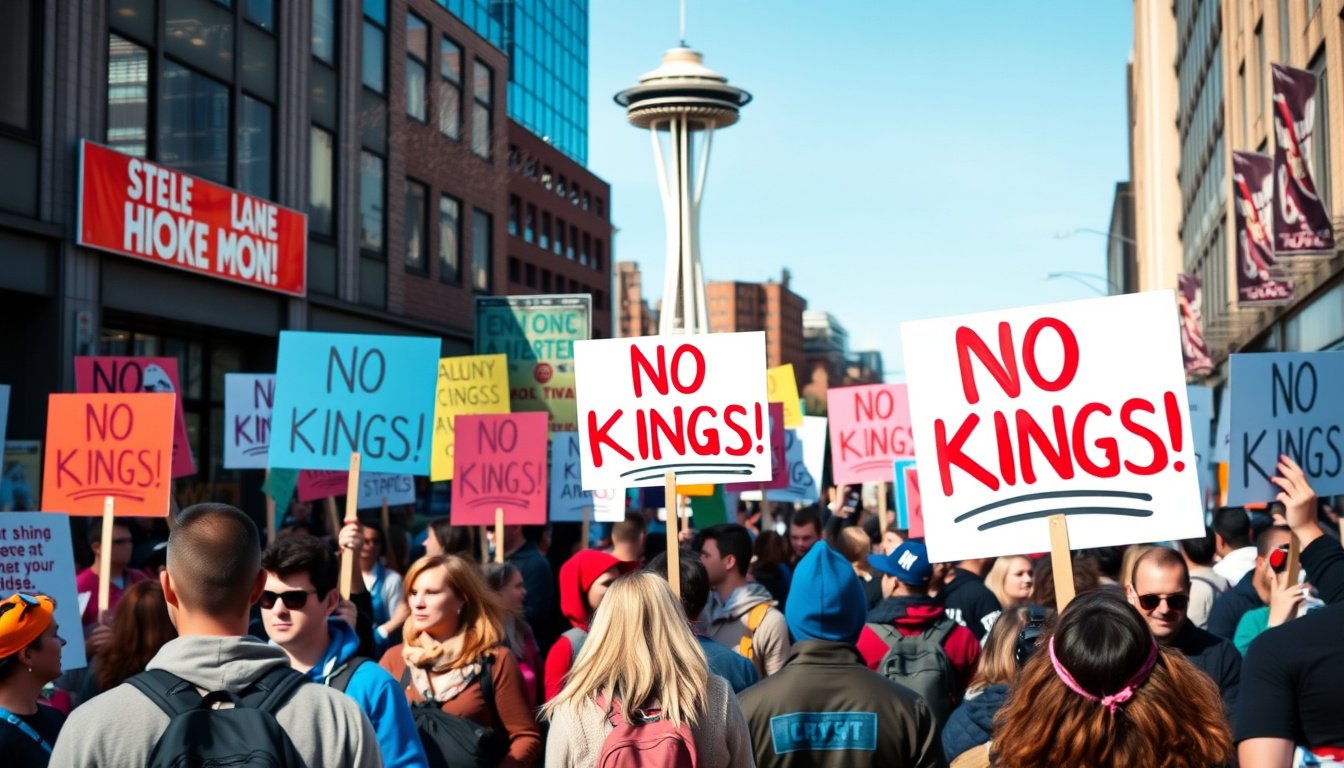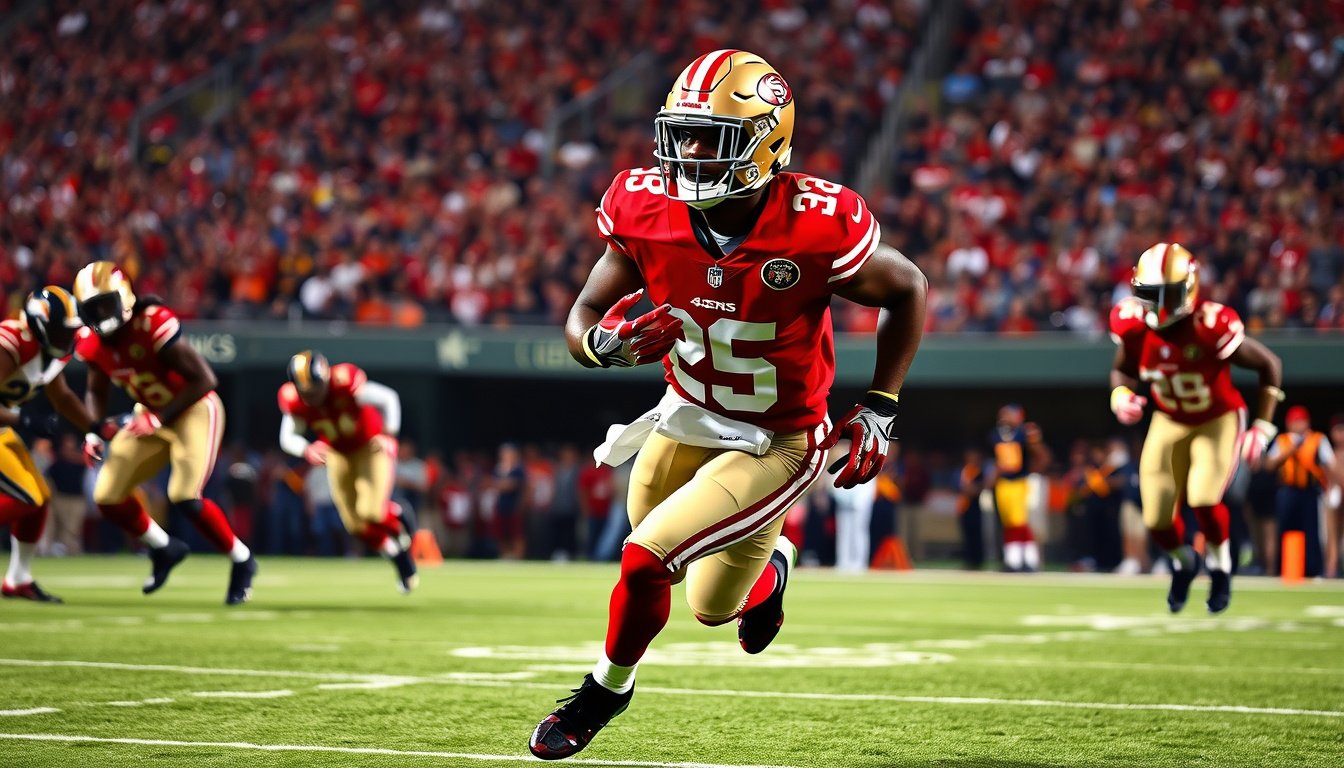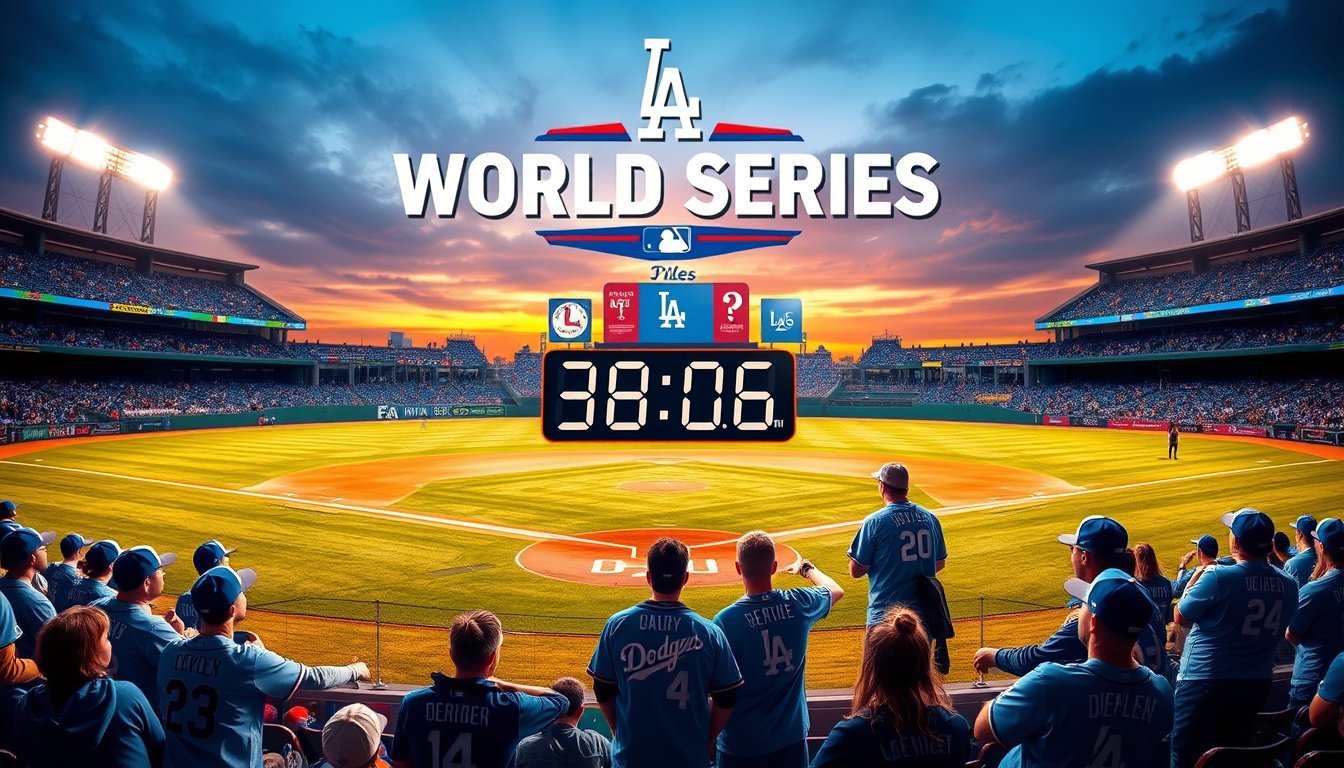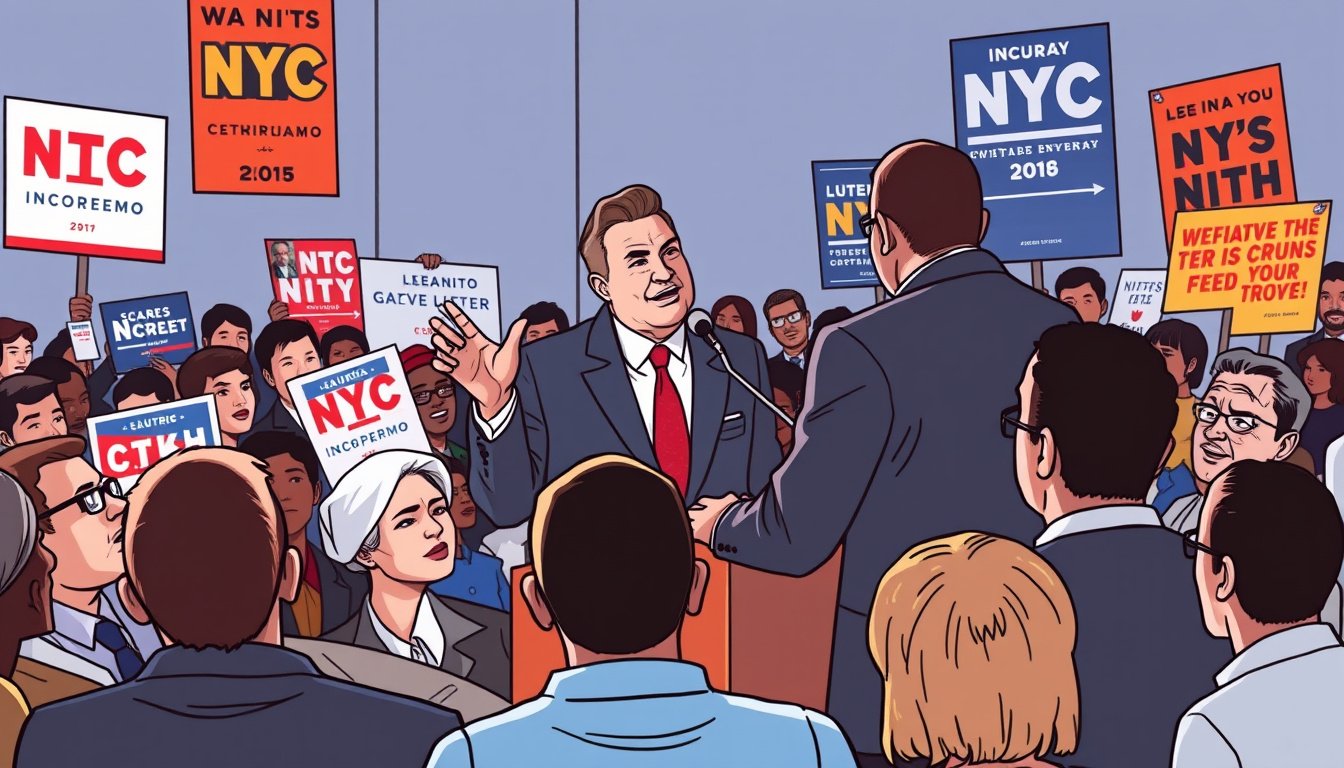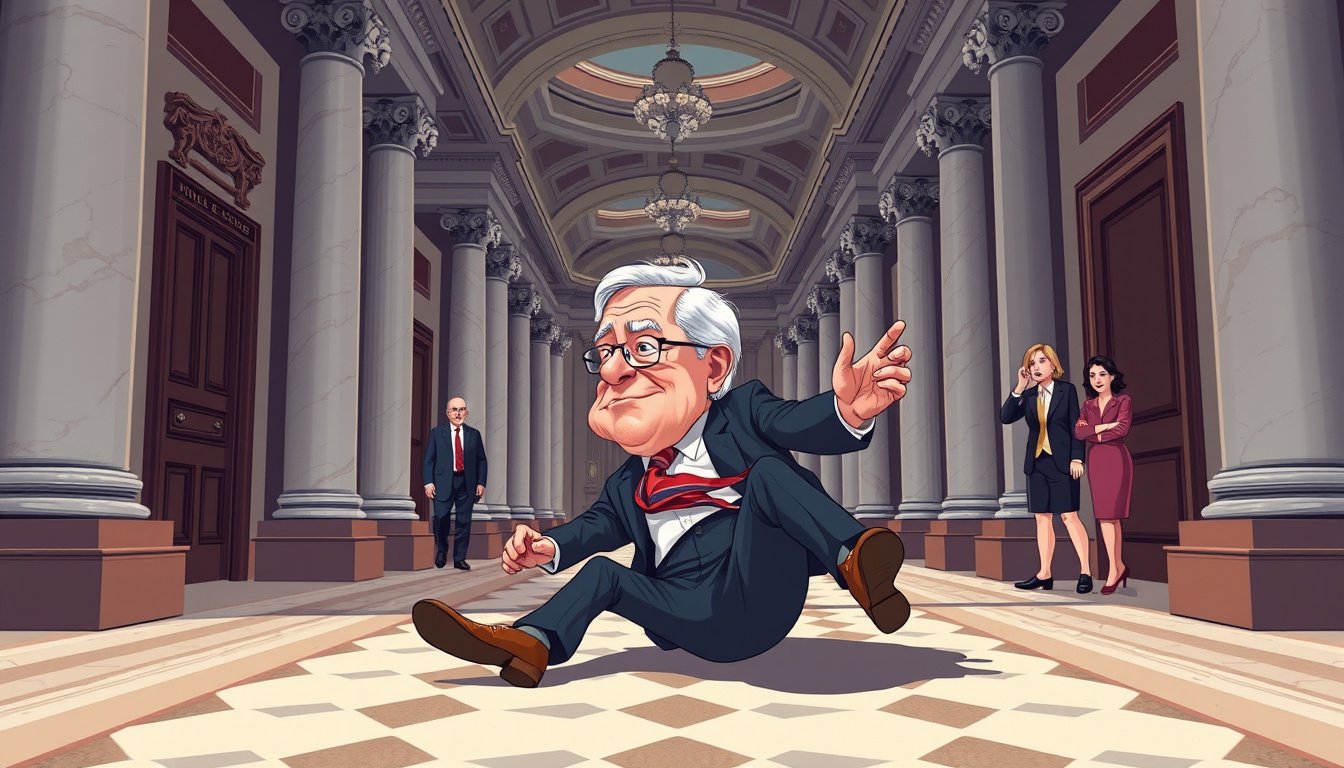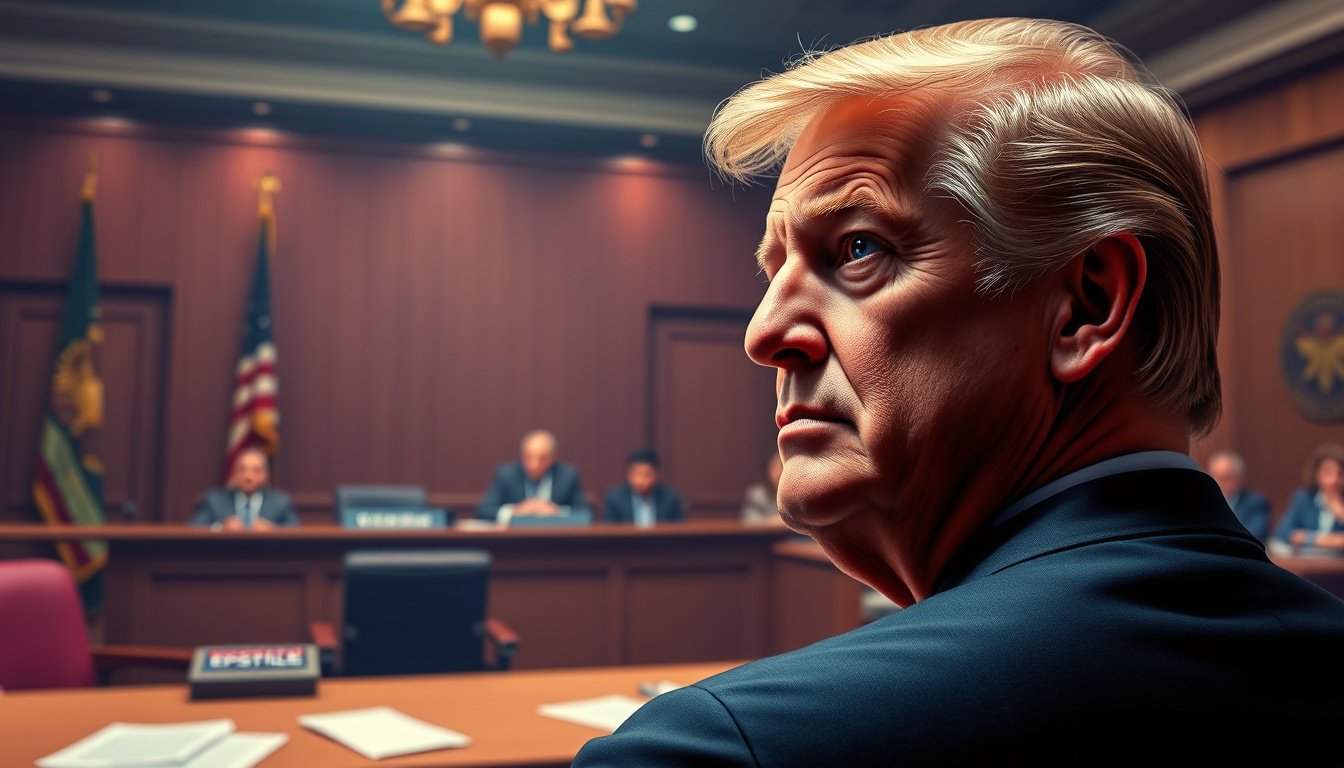On June 14, 2025, the streets of Seattle will be resonating with the passionate voices of protesters advocating for political change as part of the nationwide ‘No Kings’ movement. This demonstration is crucial, capturing the sentiments of a populace rallying against perceived authoritarianism and advocating for progressive reforms.
A City in Action: The Scope of the Protests
Over 50 protests are scheduled across the Puget Sound region, with significant gatherings at key locations including Cal Anderson Park and the University of Washington (UW). These protests are strategically timed to coincide with the graduation ceremonies at UW, ensuring a diverse assembly of participants including students, faculty, and local activists. The protests, part of a coordinated response to President Donald Trump’s administration, aim to highlight issues ranging from immigration policies to broader societal inequalities.
The ‘No Kings’ Movement Explained
The ‘No Kings’ movement represents a grassroots effort to counter what its organizers see as increasing authoritarianism and corruption within the current administration. The movement’s primary focus is to oppose the policies of President Trump and his allies. Statements from organizers emphasize the need for collective action against government overreach, particularly referencing ICE raids and aggressive policing tactics.
As stated by Seattle Indivisible, the grassroots organization backing the protests, “In his ruthless pursuit of power, Donald Trump has launched an assault on the American people.” This fervor reflects a broad spectrum of societal concerns, resonating deeply with those feeling marginalized and disenfranchised under current policies.
Key Speakers and Demonstration Plans
Notable figures such as Katie Garrow, head of MLK Labor, and U.S. Congresswoman Pramila Jayapal are slated to address attendees at the Cal Anderson Park rally. Their presence amplifies the protest’s message and underscores the importance of political action in fostering change.
The protests at UW, taking place in Red Square outside Suzzallo Library, are poised to attract attention as they align with the commencement ceremony. These events symbolize a convergence of celebration and activism—merging academic triumphs with urgent calls for social justice.
Community Engagement and Law Enforcement Preparedness
Security measures are meticulously planned, with the Seattle Police Department (SPD) emphasizing a low-profile approach geared towards facilitating peaceful demonstrations rather than confrontation. SPD has deployed a “Police Outreach and Engagement Team,” which aims to connect with organizers and ensure the safety of all participants. This commitment to non-interference unless public safety is threatened indicates a shift towards more community-oriented policing strategies.
Given the recent climate of protests in Seattle, where tensions have occasionally escalated, this approach will likely be critical in maintaining order and safeguarding participants’ rights to assemble.
Broader Implications and Community Support
As protests unfold, they will resonate not just in Seattle but across the nation, highlighting a growing dissatisfaction with political leadership and demands for change. The ‘No Kings’ protests reflect a significant socio-political trend where diverse communities unite against governance they perceive as oppressive.
Ultimately, these demonstrations are not just about dissent—they serve as a moment of collective solidarity among those advocating for progressive policies and social justice, reaffirming the belief that change is attainable through unified action.
Seattle’s streets on this day will be more than just a backdrop for protests; they will embody the voices of many, calling for accountability and reform in an era when these ideals are more crucial than ever. As the city prepared for the day of action, one thing was clear: the spirit of the ‘No Kings’ movement was alive and well, beckoning change and demanding a voice for the people.
